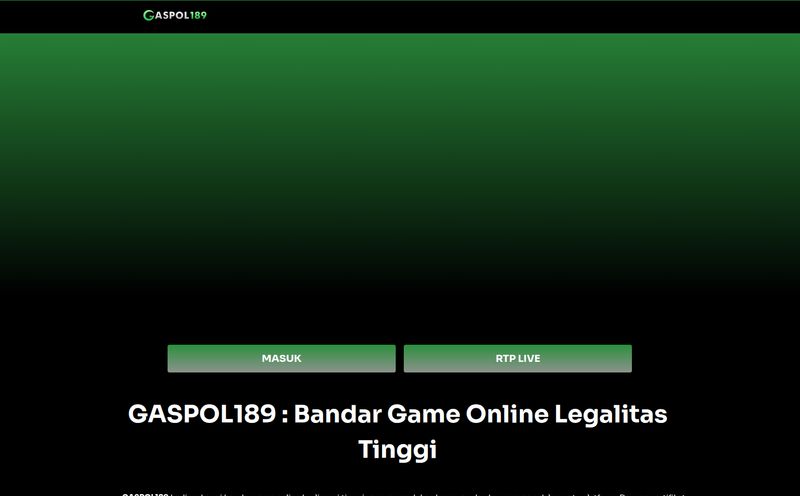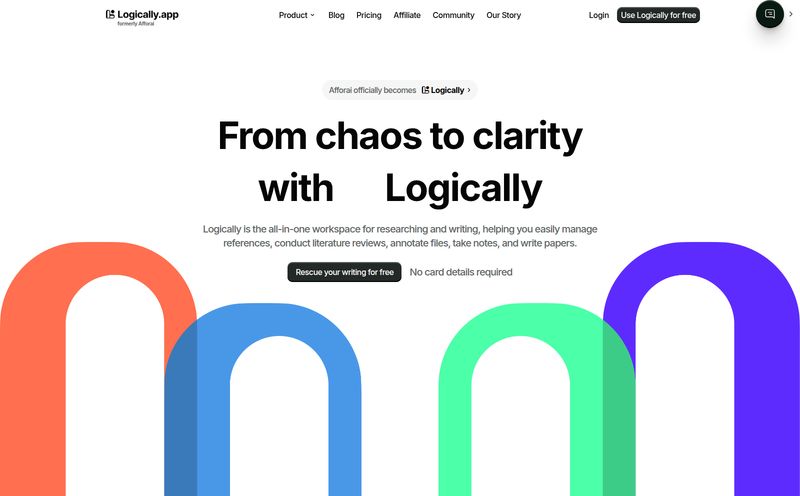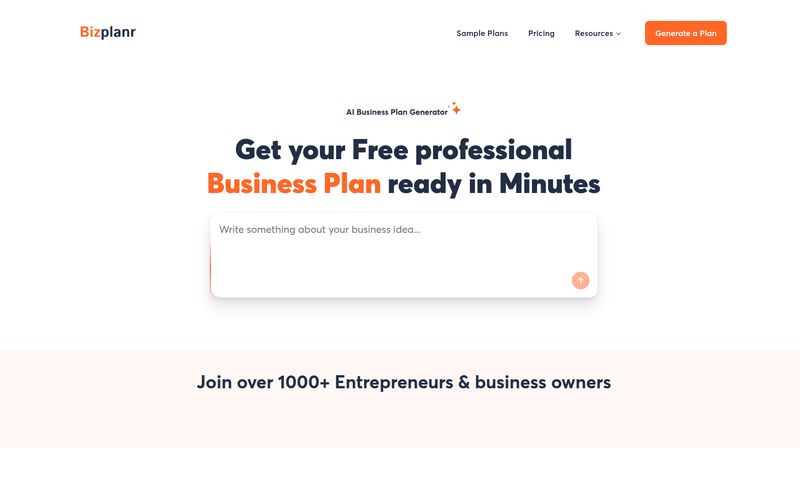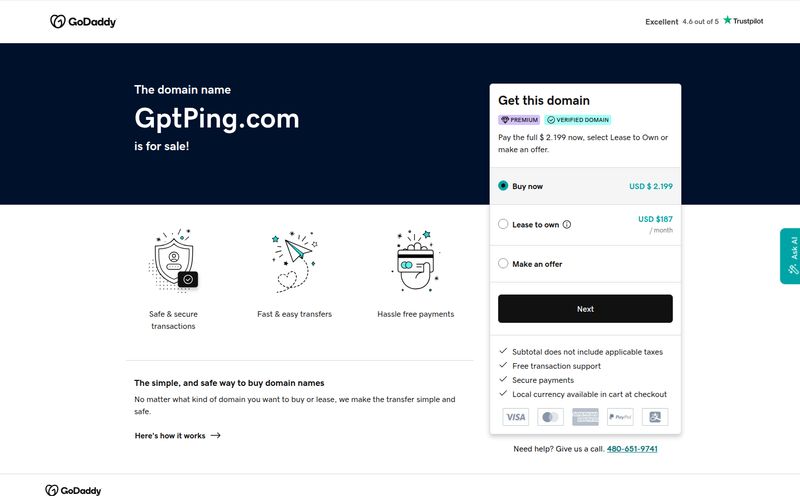Another day, another AI tool pops up on my radar. Seriously, it feels like you can’t scroll through Twitter or Product Hunt without a new “GPT-powered miracle” promising to solve all of life's problems. Most of them are... well, forgettable. They’re digital flashes in the pan. But every now and then, a weird little tool catches my eye. This week, it was a simple, unassuming thing called Solomon AI.
Its promise is simple, almost comically so: AI that provides four solutions to your problems.
No grand claims of revolutionizing your workflow or writing a novel for you. Just... four solutions. I’m a sucker for simplicity. In a world of bloated software suites, a tool that does one thing has a certain charm. So, I clicked. I had to see if this was a wise king or just another court jester.
So What Exactly Is Solomon AI?
Let's get the basics out of the way. Solomon AI is a web-based tool I stumbled upon while browsing an AI directory. The interface is about as minimalist as it gets. You’re greeted with a single text box and a button. That’s it. No complicated menus, no sign-up-for-our-newsletter pop-ups, just a space for your problem.
The concept is built on the idea that sometimes, we get stuck in our own feedback loops. We circle the same one or two solutions, unable to see the forest for the trees. Solomon's job is to be that external voice, that shot of creative espresso, by offering four distinct paths forward. It’s designed not just to give you the obvious answer, but to potentially throw a curveball that sparks a completely new line of thinking.
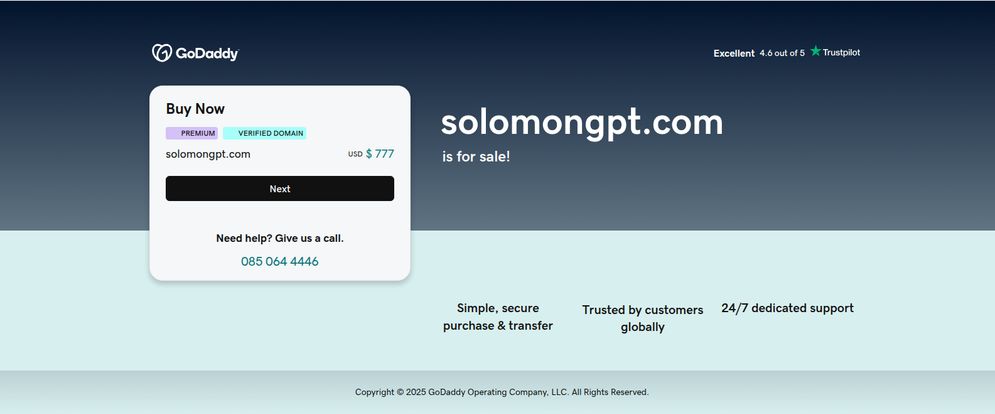
Visit Solomon AI
My First Spin with the AI Oracle
Of course, I couldn't just write about it without taking it for a spin. I decided to throw it a real-world problem I was mulling over for one of my clients. Nothing crazy, but a common headache for us SEO folks.
I typed in: “A client's e-commerce site has good domain authority and quality backlinks, but organic traffic to key product pages has been stagnant for six months.”
I hit the button and waited. A few seconds later, four tidy boxes appeared. Here’s a rough breakdown of what it spat out:
- The Technical SEO Angle: It suggested a deep dive into internal linking architecture, checking for orphaned product pages, and improving site speed specifically on those pages. Pretty standard stuff, but a solid reminder.
- The Content Refresh Angle: The AI proposed rewriting product descriptions to be more narrative-driven, adding user-generated content like reviews and photos directly to the pages, and creating comparison guides against competitors. Not bad, actually.
- The “Unexpected” Angle: This one was interesting. It suggested creating interactive tools related to the products. For a hypothetical camera store, it proposed a “Which lens is right for your photography style?” quiz that would lead users to the product pages. This was the little jolt I was looking for.
- The Off-Page Angle: It recommended a targeted digital PR campaign, not for the homepage, but specifically for the stagnant product pages. It mentioned collaborating with niche influencers for video reviews. Again, not revolutionary, but a good, focused strategy.
I was pleasantly surprised. Were any of these solutions going to win me a Nobel Prize in marketing? No. But they were all viable, and solution #3 was a genuine spark. It broke me out of my “more keywords, more backlinks” mindset. It served its purpose perfectly.
The Advantages and Disadvantages
After playing with it a few more times (you only get 5 free shots, more on that later), a clearer picture of its strengths and weaknesses emerged. It’s not a perfect system, far from it. It's less of a seasoned consultant and more of a creative sparring partner.
The biggest advantage is its ability to force you out of a mental rut. That's its whole reason for being. The user interface is clean and ridiculously easy to use, which is a breath of fresh air. Getting multiple solutions at once also helps you weigh different types of strategies against each other—technical vs. creative, on-page vs. off-page.
However, it’s still an AI. One of the solutions it gave for another problem was… well, useless. It was generic advice that completely missed the nuance of what I asked. So you have to be prepared to sift. It's a starting point, not a complete roadmap. And of course, the fact that its advice is generated by a machine means it lacks the lived experience and intuition of a human expert. It can't ask you clarifying questions or understand the complex office politics behind your problem.
The Curious Case of the Missing Domain
Now, here’s where the story gets really interesting and, frankly, a bit weird. As an SEO guy, my brain is hardwired to check out domains. On a whim, I looked up `solomongpt.com`. And guess what? It’s for sale on GoDaddy. For $777.
This is a huge red flag for any digital tool. It suggests a few possibilities, none of them particularly great:
- The project was a quick experiment, and the developer has already moved on.
- The creators couldn’t secure the ideal domain and are operating from a different, less memorable URL.
- The project might be on the verge of being abandoned entirely.
It adds this strange, ephemeral quality to the whole experience. I found the tool itself via Declom AI, a directory for these kinds of projects, which feels fitting. It’s like discovering a cool but unnamed pop-up restaurant that might be gone next week. It makes me hesitant to rely on it, but it also makes me want to use my free queries while I still can.
What’s the Price of Wisdom?
As far as I can tell, there is no pricing plan for Solomon AI. The tool states you get 5 free uses, and that seems to be it. There's no “Upgrade” button, no “Pricing” page, nothing. This reinforces my theory that this is more of a portfolio piece or a beta test than a full-fledged commercial product.
So, you can’t buy more credits even if you wanted to. It's a free-for-all, but the party ends after five rounds. It's a bit of a bummer, but also understandable for what feels like a passion project.
Who Is This Tool Really For?
So, should you rush over and use one of your precious five queries? Maybe.
Solomon AI is not for someone who needs a definitive, guaranteed-to-work solution to a mission-critical problem. Dont use it to decide whether to perform heart surgery or launch a rocket.
It’s for:
- The Creative Professional: A writer, marketer, or designer experiencing a block.
- The Solo Entrepreneur: Someone who wears a lot of hats and needs a quick, free second opinion without booking a consultation.
- The Curious Tinkerer: Anyone who is just fascinated by what AI can do and wants to play with a simple, focused tool.
It’s a great little engine for idea generation. Use it to kickstart a brainstorming session, not to finish it.
My Final Verdict on Solomon AI
I like Solomon AI. I really do. I admire its simplicity and its focused goal. It delivered on its promise of providing four solutions, and one of them was genuinely helpful. It’s a fun, potentially useful tool for shaking the mental cobwebs loose.
But the domain name situation gives me serious pause. It’s hard to get too attached to a tool that might not have a permanent home. So my advice is this: go give it a try. You have nothing to lose. Use your five free queries on a problem that’s been bugging you. Who knows, you might get that one unexpected idea that cracks the whole thing wide open. Just don’t be surprised if you go back next month and find the digital lights are off.
Frequently Asked Questions
- What is Solomon AI?
- Solomon AI is a simple artificial intelligence tool designed to provide four different solutions to any problem you input into its text box. It's meant to be a brainstorming and idea-generation tool.
- Is Solomon AI free to use?
- Yes, it's free for up to 5 uses. Currently, there is no option to purchase more queries, so the limit appears to be final.
- How does Solomon AI compare to something like ChatGPT?
- It's much more focused. While ChatGPT is a conversational AI that can do many things, Solomon AI is built for one specific task: providing a structured list of four solutions. It’s less of a conversation and more of a direct output.
- Can I trust the advice from Solomon AI?
- You should treat it as a starting point, not as gospel. Some solutions can be insightful, while others may be generic or not applicable. Always apply your own critical thinking and expertise. It's a tool for inspiration, not a replacement for professional advice.
- What happens after my 5 free uses are up?
- As of now, it seems that's it. There isn't a paid plan or a way to get more uses. Your access to the tool's core function will be restricted.
- Where can I find Solomon AI?
- The tool is often found listed on AI directories like Declom AI. The direct domain `solomongpt.com` is currently for sale, indicating the project might be experimental or operating under a different, less obvious URL.
Reference and Sources
- GoDaddy Domain Listing: solomongpt.com
- Tool Discovery Platform: Declom AI
